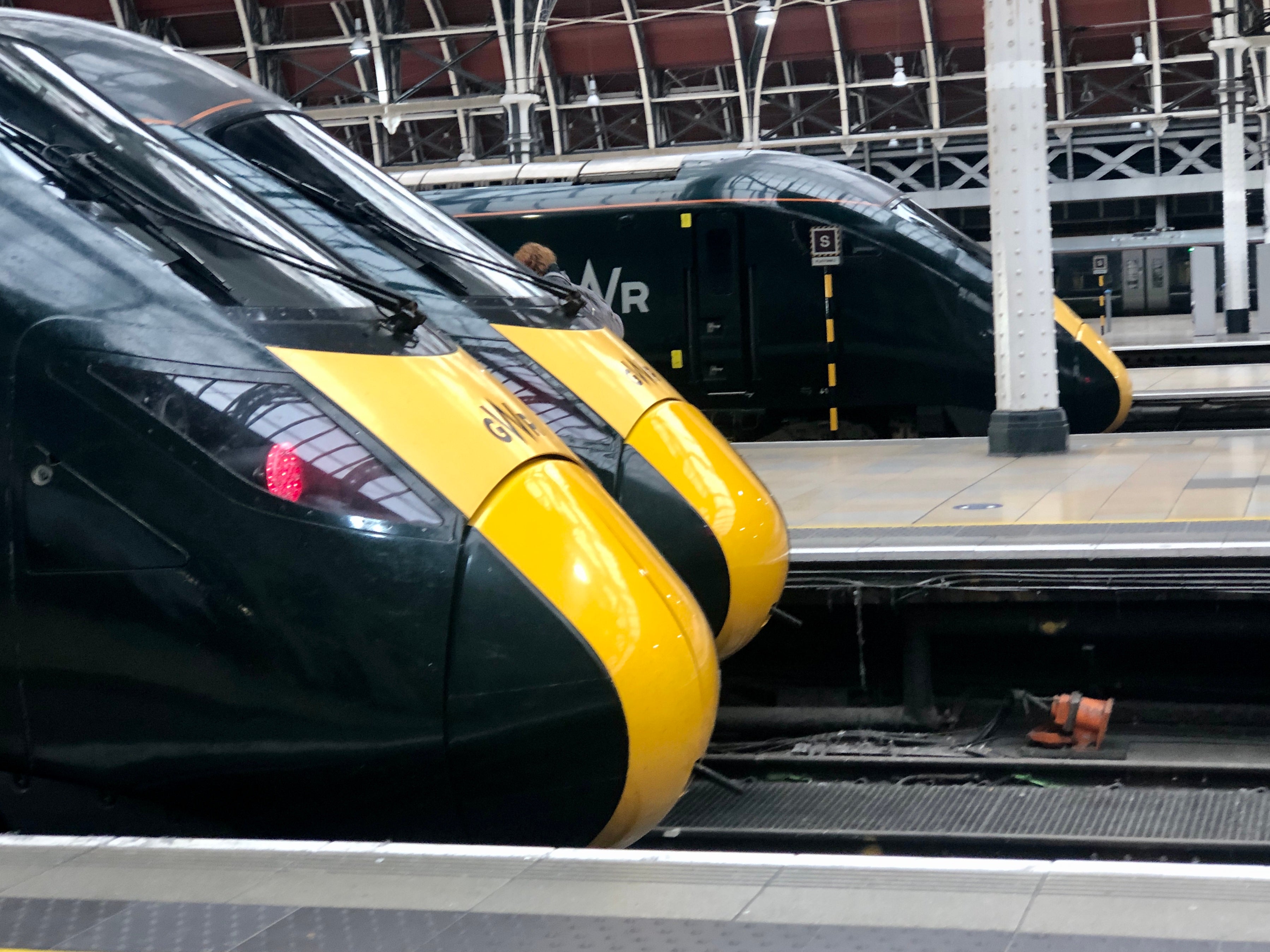Five years on, rail passengers are still waiting for ticket improvements
Train Talk: ‘This was only ever a plan for wallpapering over the cracks,’ says Mark Smith, ‘The Man In Seat 61’

Your support helps us to tell the story
From reproductive rights to climate change to Big Tech, The Independent is on the ground when the story is developing. Whether it's investigating the financials of Elon Musk's pro-Trump PAC or producing our latest documentary, 'The A Word', which shines a light on the American women fighting for reproductive rights, we know how important it is to parse out the facts from the messaging.
At such a critical moment in US history, we need reporters on the ground. Your donation allows us to keep sending journalists to speak to both sides of the story.
The Independent is trusted by Americans across the entire political spectrum. And unlike many other quality news outlets, we choose not to lock Americans out of our reporting and analysis with paywalls. We believe quality journalism should be available to everyone, paid for by those who can afford it.
Your support makes all the difference.“The ticket buying experience is all too often complicated and hard to navigate, and I am committed to working with the industry to make it simpler.”
So said the rail minister, adding: “We want a more modern and passenger-focused fares and ticketing system which takes advantage of all the benefits of new technology.
“Rail passengers must be able to trust that they are getting the best possible deal every time they travel.”
The trouble is, that wasn’t the current rail minister, Chris Heaton-Harris. Nor was it any of his three predecessors, Michael Ellis, Jesse Norman or Jo Johnson. It was Paul Maynard, and he was speaking five years ago this week.
“We want to see real results for passengers in the next two years. We also recognise that the fares system is complicated and hard to navigate, and the impact this has on people’s trust in the railway,” Mr Maynard said.
As it happens, I took a train from London to Bath and back today. I could have booked an online ticket but it would have been madness to do so: for anyone travelling by train from the capital to the beautiful spa city on the Avon, the last thing you want is a ticket from London to Bath and back.
You need two separate return tickets, and of course I went to the helpful station ticket desk at Paddington station to buy them – the fastest way to exploit the (perfectly legally) Didcot Dodge. A “split ticket” on this route saves £34, and the only thing to watch for is that one or two trains don’t stop at the Oxfordshire junction – rendering the dodge dodgy.
So, with my four freshly printed piece of cardboard, I climbed on board and sought views on just how far we have come in those five years.
First stop: Mark Smith, also known as The Man In Seat 61. Besides having done time as a former British Rail manager, he also has some previous at the Department for Transport (DfT). So he knows the system inside out.
“Some minor tinkering at the margins has indeed been done,” he says. “My ticket to London now says ‘Route High Wycombe’ rather than ‘Any permitted’. Websites now tell you if there are only a few advance tickets left at the price you see.”
Nicky Gardner, co-author of Europe by Rail: The Definitive Guide, was less flattering.
“I cannot see that any real progress has been made,” she said. “I’ll mark that down as a three out of 10, and expect to see a lot more progress next year as the Williams-Shapps plan for rail begins to kick in.” This is the promise comprehensively to overhaul a fares system where only people like me, with too much time on our hands, can be sure of getting the best deal.
Ms Gardner continues: “Thinking on rail ticketing in Britain needs a revolution. Why do we need a ticket at all? There are other commodities I use - take electricity for example - where I don’t need a token that signals prior payment. Why not move to touch-in, touch out as the norm for rail ticketing?”
Controversially, Susanne Kries, co-editor of Hidden Europe magazine, suggests that asking the public was a poor idea. “Consumers are famously averse to change, and even more averse to anything that looks like a price increase.
“The simplification of the arcane fares structure on Britain’s railways is so very important, but will inevitably lead to winners and losers. DfT hasn’t even made a start on this.”
Let’s bring in a DfT spokesperson: “Simplifying the confusing ticket system is a key focus of Great British Railways, which joins our new Integrated Rail Plan in building a modern, expanded railway fit for today and future generations.
“To help deliver this, we’ve recently announced £360m to radically reform fares, ticketing and retailing, including introducing contactless Pay As You Go at hundreds of stations across the country.”
Last word to Mark Smith. “This was only ever a plan for wallpapering over the cracks. The basic problem with British rail fares will only be resolved by bold reform of both fares structure and pricing.
“The new Great British Railways organisation will soon take control of the railways. The question is, will they have the courage – and be given the freedom by DfT and Treasury – to do that?”
Join our commenting forum
Join thought-provoking conversations, follow other Independent readers and see their replies
Comments